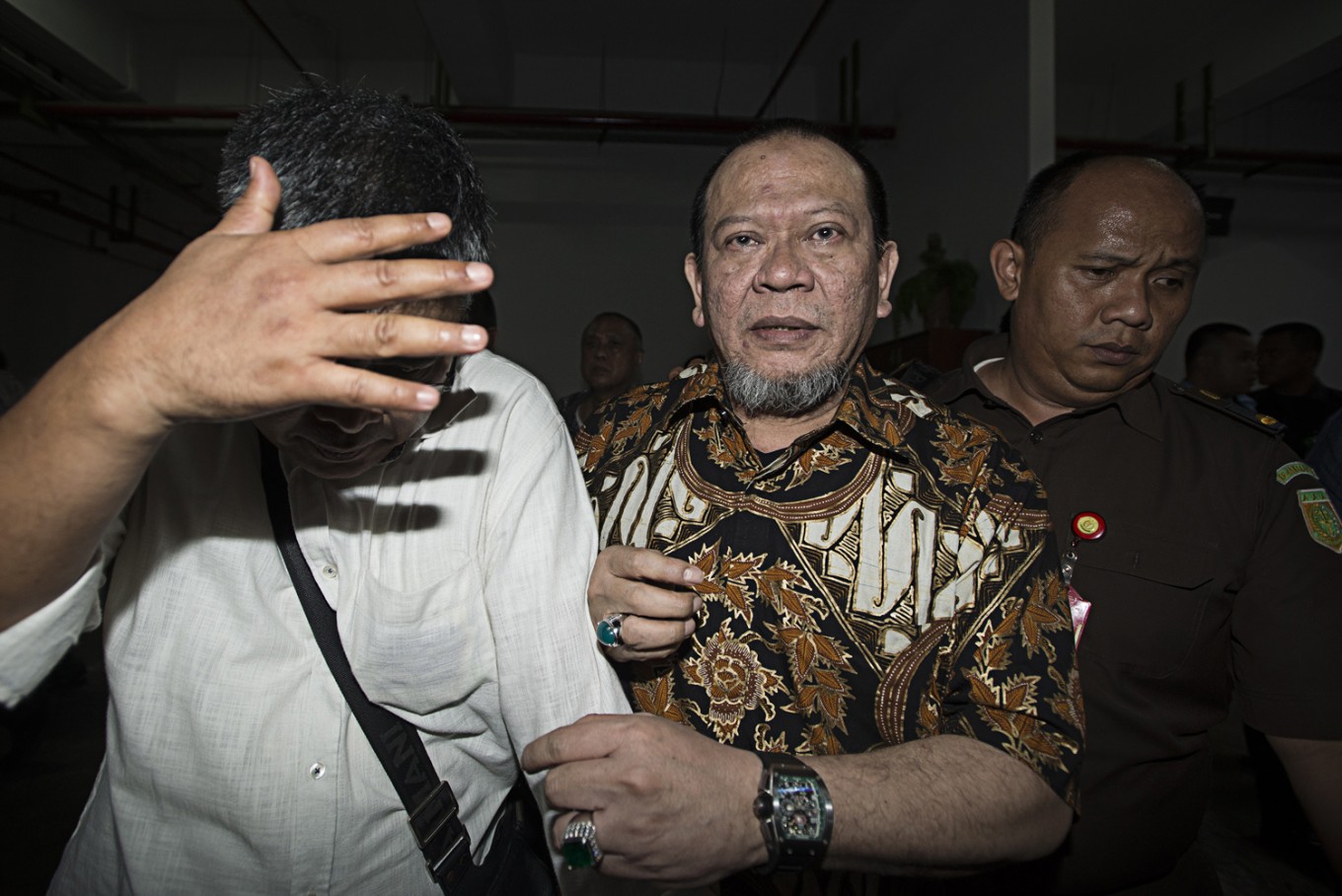Popular Reads
Top Results
Can't find what you're looking for?
View all search resultsPopular Reads
Top Results
Can't find what you're looking for?
View all search resultsIt's official: Indonesia has arrived at its Trumpian moment
The House or political parties may not be the ideal place to find meritocracy, but it was still jarring to see a scion of the country's top political family being elected to hold its speakership position.
Change text size
Gift Premium Articles
to Anyone
“The path that this country has taken has never been a straight line. We zig and zag and sometimes we move in ways that some people think is forward and others think is moving back, and that’s OK.” Those were the words of former United States president Barack Obama. He made the remarks during his farewell address at the White House.
As a president who was considered as a symbol of hope in American politics, Obama in that speech tried to sound optimistic although he appeared to express a sense of resignation that American life would soon take a turn for the worse.
Many had chalked up that with Obama's election, America had arrived at a new stage where progressive ideas like social justice and gender and racial equality had finally become the norm. The election of Donald Trump in the 2016 election was a reality check to such optimism.
Soon after Obama left the scene, it did not take long for the world to find out that racism, economic inequality and political violence continue to blight America. To make matters worse, problems like gross incompetence, abuse of power and political corruption — things that have long been associated with third world countries — started to take hold.
Also, norms and values that have long guided American politics were thrown out the window. If sex scandals, lies and obstruction of justice could bring down past presidents, Trump has thrived on spewing lies and misinformation, including ones about his sexual escapades.
While meritocracy has long been the primary requisite in hiring people for government jobs, Trump prefers to have amateurs whose only qualification is familial and/or fraternal bonds.
On policies that could have direct impacts on people's lives, the Trump administration has weakened environmental protection standards, propped up the fossil fuel industry and cut taxes for corporations and the rich.
Such a Trumpian condition turned out to be contagious. The fight over Brexit brought the rise of Boris Johnson in the United Kingdom, while the surge of violence in Brazil ushered in populist leader in the form of Jair Bolsonaro. In India, the fervor for nationalism lead to the election of Narendra Modi.
The reelection of President Joko "Jokowi" Widodo on the surface looks like a repudiation of the trend. In fact, soon after his reelection, the New York Times published an article with the title "With Joko Widodo's Re-election, Indonesia Bucks Global Tilt Toward Strongmen."
We may not have elected a strongman at the polls, but in the months following the April 17 presidential election and especially in the past month, Indonesia appears to have officially entered its Trumpian stage.
And judging from both the level of apathy toward the direction of the country's politics and the frequency of street protests that have taken place in past five months, it looks like the next five years will not be a joyride for all of us.
What happened in the wake of the April's general election also dispels any notion that after the start of the Reform Era, the country's history would move in a straight line and that after passing a certain threshold of 20 or 30 years, Indonesian democracy would be consolidated and everyone could sing “Kumbaya”.
After witnessing the successful attempt from lawmakers to weaken one of the icons of the reform movement, the Corruption Eradication Commission (KPK), this week we reached the peak Trumpian moment with a stunning development at the House of Representatives.
The House or political parties may not be the ideal place to find meritocracy, but it was still jarring to see a scion of the country's top political family being elected to hold its speakership position.
And as if it's not dispiriting enough to see the daughter of Megawati Soekarnoputri being elected speaker of the House, lawmakers have also agreed to elect as her deputies Muhaimin Iskandar of the National Awakening Party (PKB) and Azis Syamsuddin of the Golkar Party, two politicians who had been targeted by the antigraft commission.
A closer inspection at the roster of new lawmakers will also reveal a picture of the country's political system turning into a stage for tragicomedy.
Also making his comeback to the House is Yahya Zaini, a Golkar politician whose career in politics was cut short in 2006 after his sex video with dangdut singer Maria Eva was widely circulated online.
To cap a topsy turvy day at the House building on Tuesday, late at night, members of the Regional Representatives Council (DPD) elected as speaker La Nyalla Mattalitti, former chairman of the Soccer Association of Indonesia (PSSI), who three years ago stood trial for corruption.
To add more merriment to the political stage is the presence of 14 actors and singers who joined the list of new House members for the 2019-2024 term. These superstars-turned-lawmakers include massively popular singer Krisdayanti and dangdut crooner Mulan Jameela.
And if the prospect of celebrities helping to craft laws that would weaken civil liberties and gut the KPK of its power doesn't terrify you, the fact that almost half of the 575 lawmakers have backgrounds as businesspeople should be a cause for concern that political corruption may only get worse in the years to come.
Welcome to the jungle!










